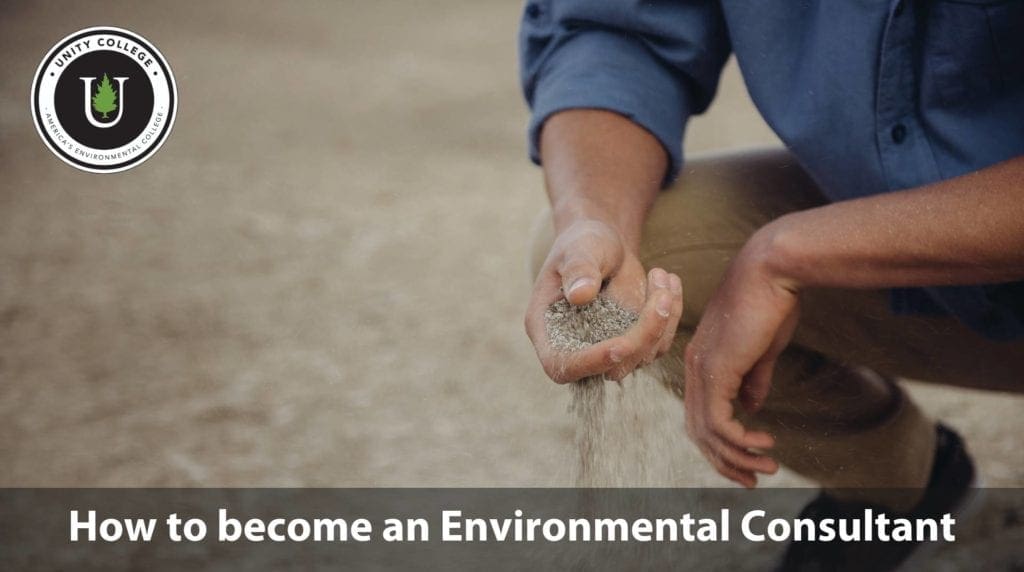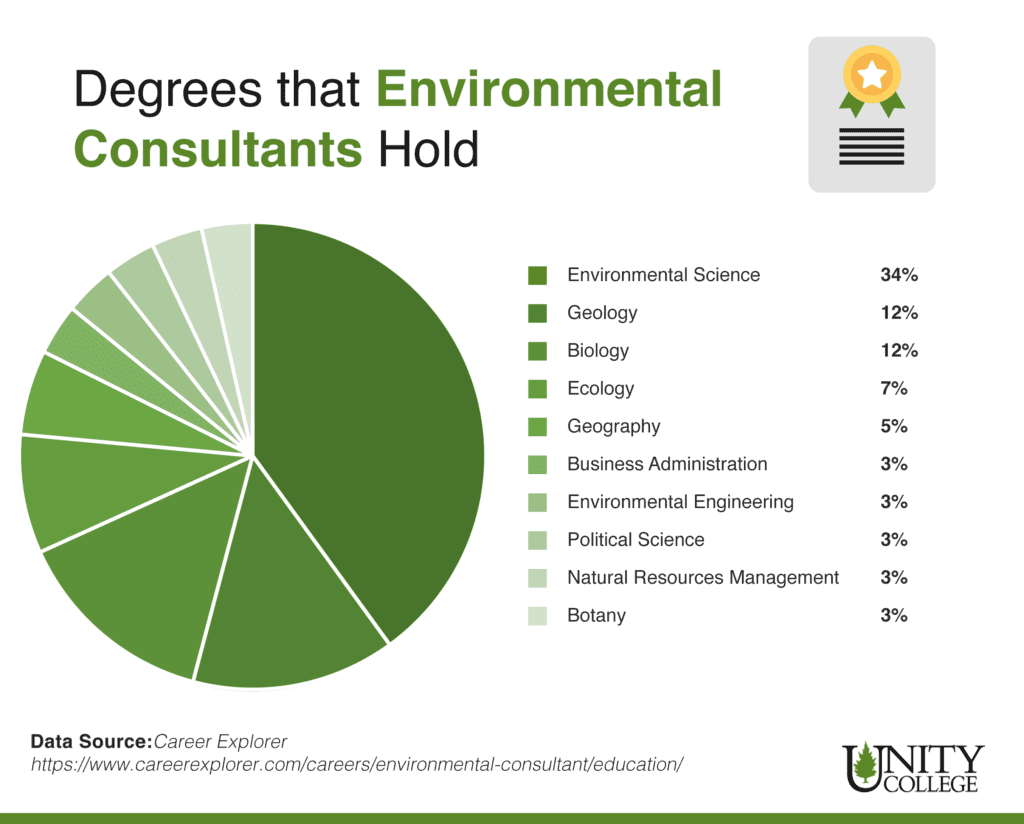
How To Be an Environmental Consultant: Get Your Bachelor’s Degree
The first step on the path to becoming an Environmental Consultant is to choose a relevant degree program. A degree in Environmental Studies can help you start your journey with a firm footing.
Conservation Biology
Conservation Biology focuses on the environment from a hard-science perspective. Students pursuing this major study things like cell biology, ecology, evolution, and genetics. If you are fascinated by issues like biodiversity loss and invasive species, Conservation Biology is a field of study that you should strongly consider.
Environmental Studies
In Environmental Studies, students learn about the social and ethical impacts of environmental issues. Undergraduate courses tackle issues like environmental justice and teach students how to prevail upon the people who have the power to make decisions that will change the world. The track that leads to a career in environmental activism starts here.
Other Degree Programs
While less closely-related than Environmental Studies or Conservation Biology, degrees in areas such as Environmental Law Enforcement, Environmental Writing and Media, Sustainable Agriculture or Environmental Policy can help you gain some of the skills you will need to become an environmental consultant.

Post-Graduate Degree Programs: In-Depth Environmental Studies
Generally, a bachelor’s degree is sufficient for graduates who want to become Environmental Consultants. However, some employers prefer to hire candidates with advanced degrees. To determine whether you should extend your studies, do some research. Identify the organizations that interest you most and comb through their web pages. Do their job postings for Environmental Consultants say “Master’s degree preferred?” Do their employees’ biographies show advanced degrees in their lists of credentials? If so, you should find a Master’s program that fits your needs.
You may decide to earn a graduate certificate in areas such as Urban Forestry, Wildlife Management or Natural Resources. Alternatively, a Professional Science Masters Degree in Environmental Sciences will allow you to study subjects like biogeochemistry and ecology in depth. In an advanced degree program, you will have the opportunity to tailor your studies to your interests and research matters that are important to you.
Working In Your Field
Gaining real-world experience is often the rockiest section of any career path. Employers are often reluctant to hire someone who has no experience, making it all the more difficult to get the experience you need to land your dream job. Fortunately, there are many ways to gain relevant experience that will help you become an environmental consultant.
Environmental Jobs for Undergraduates
Look for entry-level positions in environment-related fields. During your undergraduate years, try taking a summer job as a caretaker for a city or national park. Doing so can help you show future employers your commitment to environmental stewardship. A paid internship (or unpaid, if you can afford it) at a nonprofit is also an excellent way to make yourself desirable to hiring managers. Find environmental internships on idealist.org or your local nonprofit job board.
Jobs to Pursue After Graduation
When you finish school, working as a research assistant can help you acquire the experience you will need in data collection and analysis. Taking a job as a technician or field analyst can also help you bolster your skillset and impress future employers. Lastly, working as a field officer on an environment-related political campaign can help you make connections with top influencers and decision-makers. Idealist.org and the Wellstone Jobs Board are great places to search for environmental campaign jobs anywhere in the United States.
A Step Beyond: Earn Your Board Certification
Earning board certification in environmental science can not only help you stand out among peers but also lend you the credibility you will need to influence the most powerful leaders and politicians. The American Academy of Environmental Engineers and Scientists offers board certification in a wide range of specialties, including:
- Sustainability Science
- Environmental Biology
- Environmental Chemistry
- Environmental Microbiology
- Environmental Toxicology
- Groundwater and the Subsurface Environment
- Air Resources
- Surface Water Resources
Solid Waste Management - Hazardous Waste Management and Site Remediation
Before you can earn board certification, you will need to complete several prerequisites, including earning your Bachelor’s, Master’s and, in some cases, a doctorate. Board certification is a distinction carried by the best educated and most dedicated individuals in environmental science.
Grow Into Your Environmental Consulting Career
Once you become an environmental consultant, you can continue to expand your skills and grow into new roles. You may one day work your way up to Executive Director of a nonprofit, or even start your own. A demonstrated commitment to protecting the environment could help you win a seat in a public office, or become an advisor to high-ranking officials. With hard work, dedication and the right education, you could help change environmental policies and improve the health of our planet.
Now that you understand how to be an environmental consultant, you can begin your journey toward a long and rewarding career.



